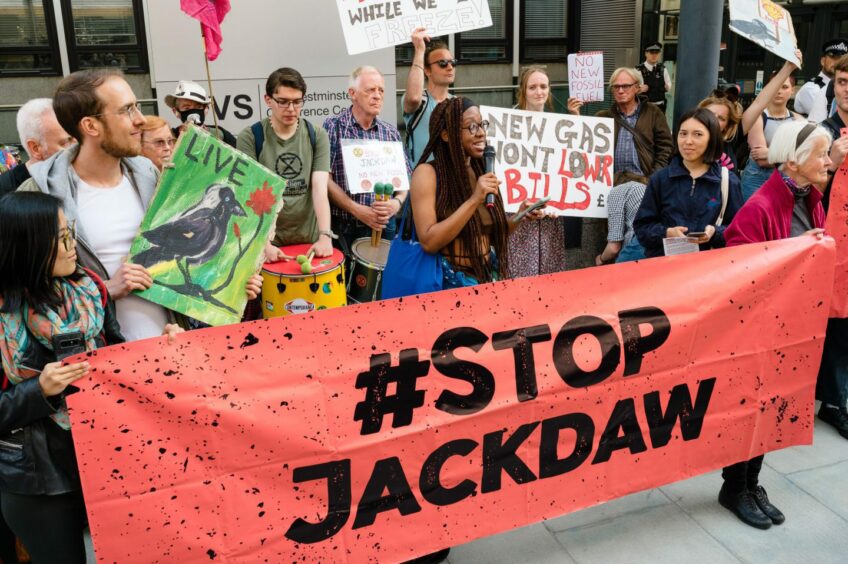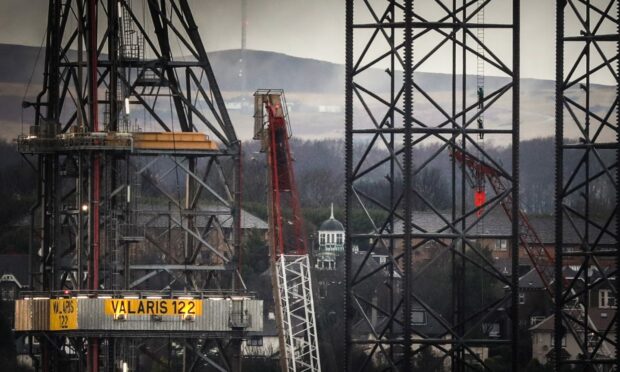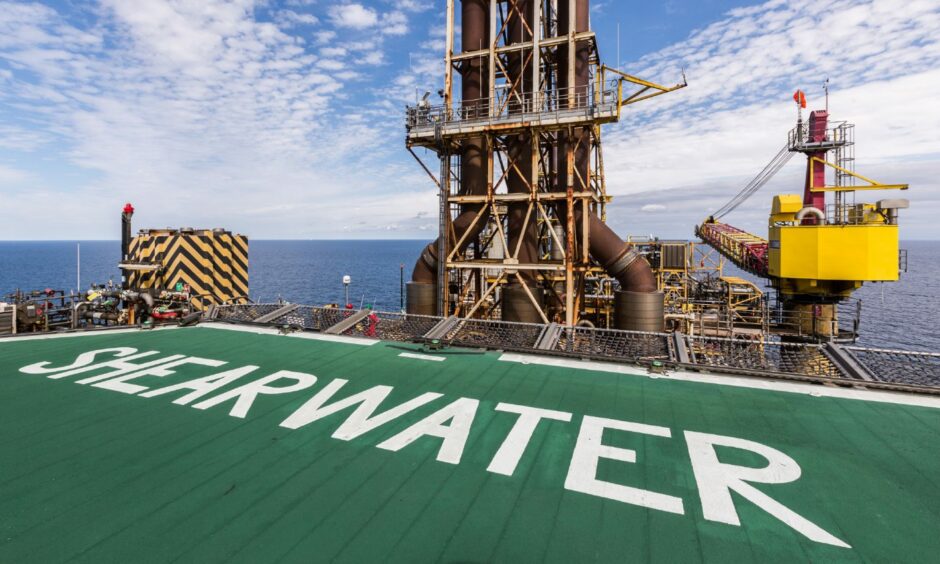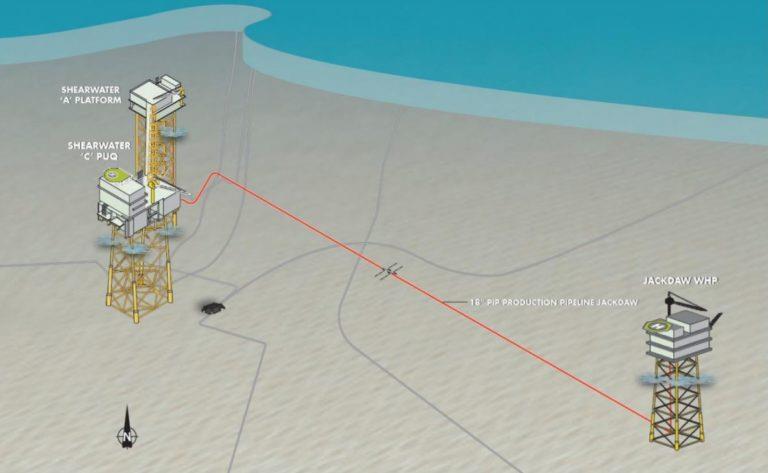Energy giant Shell is getting ready to carry out drilling work on its controversial Jackdaw development in the central UK North Sea.
The project has attracted the ire of climate activists opposed to all new fossil fuel projects in Britain.
A notice to mariners posted by Kingfisher Information Services – an online guide to surface and subsea hazards in British waters – shows the window for the Valaris 122 rig to be on location opens today.
Drilling and completion activities are expected to last about 538 days, meaning the project could wrap up in February 2025, according to the update. During that time Valaris 122 will drill four wells through the newly installed Jackdaw platform.
A fleet status report shows the harsh environment jack-up has been on lease to Shell since November 2022.
That contract finishes this month and will be replaced by another, which will run from September to January 2025. It has a value of more than £47 million, based on an estimated duration of 500 days.
Field details
Shell expects Jackdaw, located about 155 miles east of Aberdeen, to start producing in the mid-2020s.
The project will consist of a wellhead platform, along with subsea infrastructure tied-back to Shell’s Shearwater production hub.
At peak production rates, Jackdaw is expected to deliver 40,000 barrels of oil equivalent per day, and could account for more than 6% of projected UK North Sea gas production.
Shell is on record as saying it will spend £500m to deliver the project.
Just over a year ago Aker Solutions was awarded a contract for the engineering, procurement, construction and installation of the Jackdaw platform.
Aker Solutions expects to deliver the first part of the work – the steel substructure, complete with pre-drilling – to Shell in 2023.
The topside will follow in 2024, with fabrication taking place at Aker Solutions’ yard in Verdal, Norway. At its peak the project will employ more than 300 people.
Opposition mounting
There remains significant legal and protestor opposition to the development, while it has also had to jump hurdles to appease industry regulators.
The UK’s Offshore Petroleum Regulator for Environment (Opred) knocked back the scheme’s environmental statement in October 2021, leaving its future up in the air.
But a renewed focus on domestic production gave Jackdaw fresh impetus and it was approved in June 2022. A final investment decision from Shell followed shortly after.
Around that time the Stop Jackdaw campaign group – a splinter of the Stop Cambo campaign – emerged to oppose development of the field.

Greenpeace launched a legal challenge against the UK Government’s decision to approve it.
The action is currently on hold “pending the decision by the UK Supreme Court on another case which concerns similar legal issues”.
Greenpeace claims Opred rubber-stamped Jackdaw without accounting for carbon emissions, which is disputed.
In its 2023 annual report Shell said “there is a relatively low risk of disruption” to the project arising from the challenge.
Greenpeace is also seeking a judicial review of the approval decision on environmental grounds.



Conversation